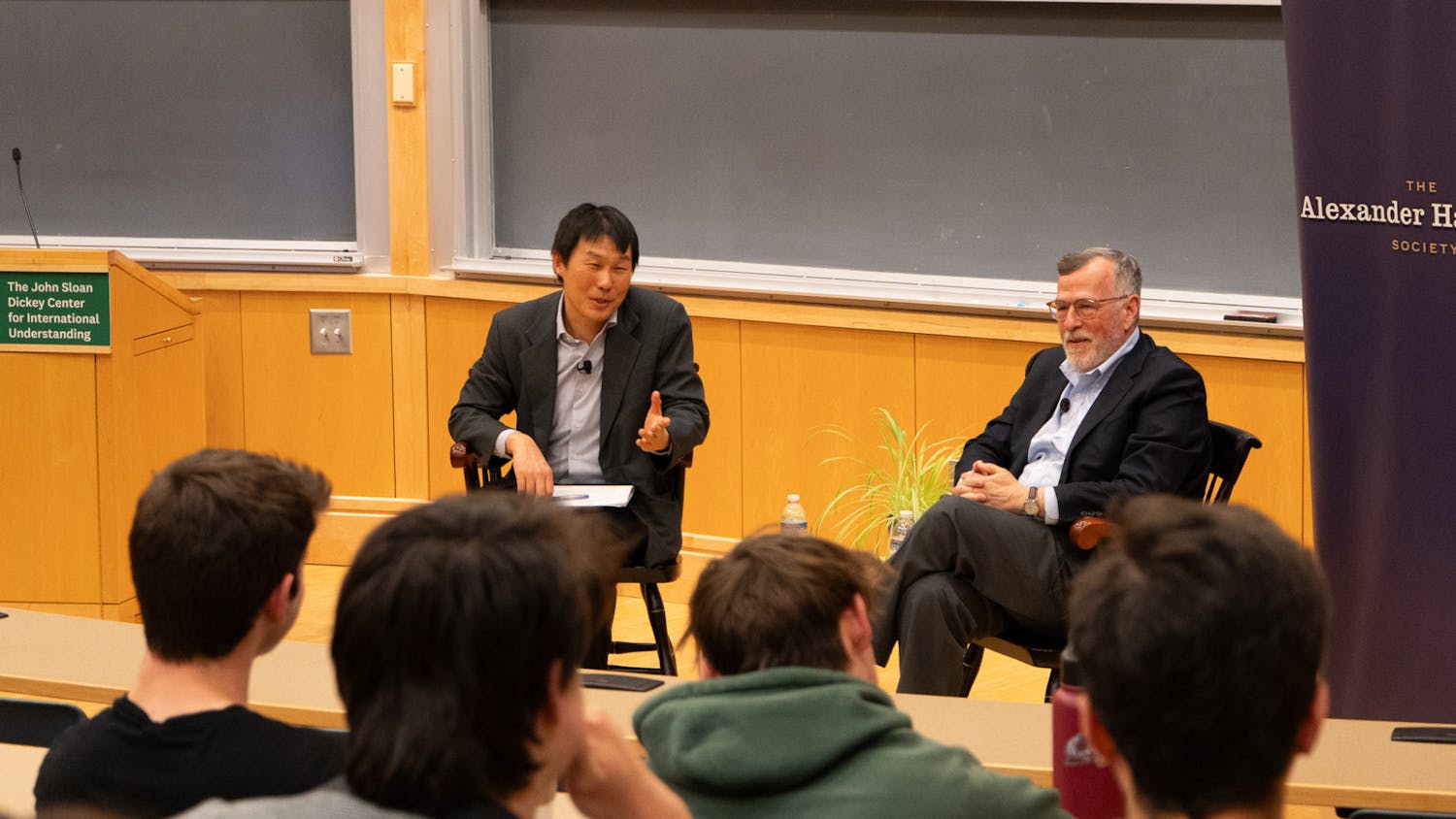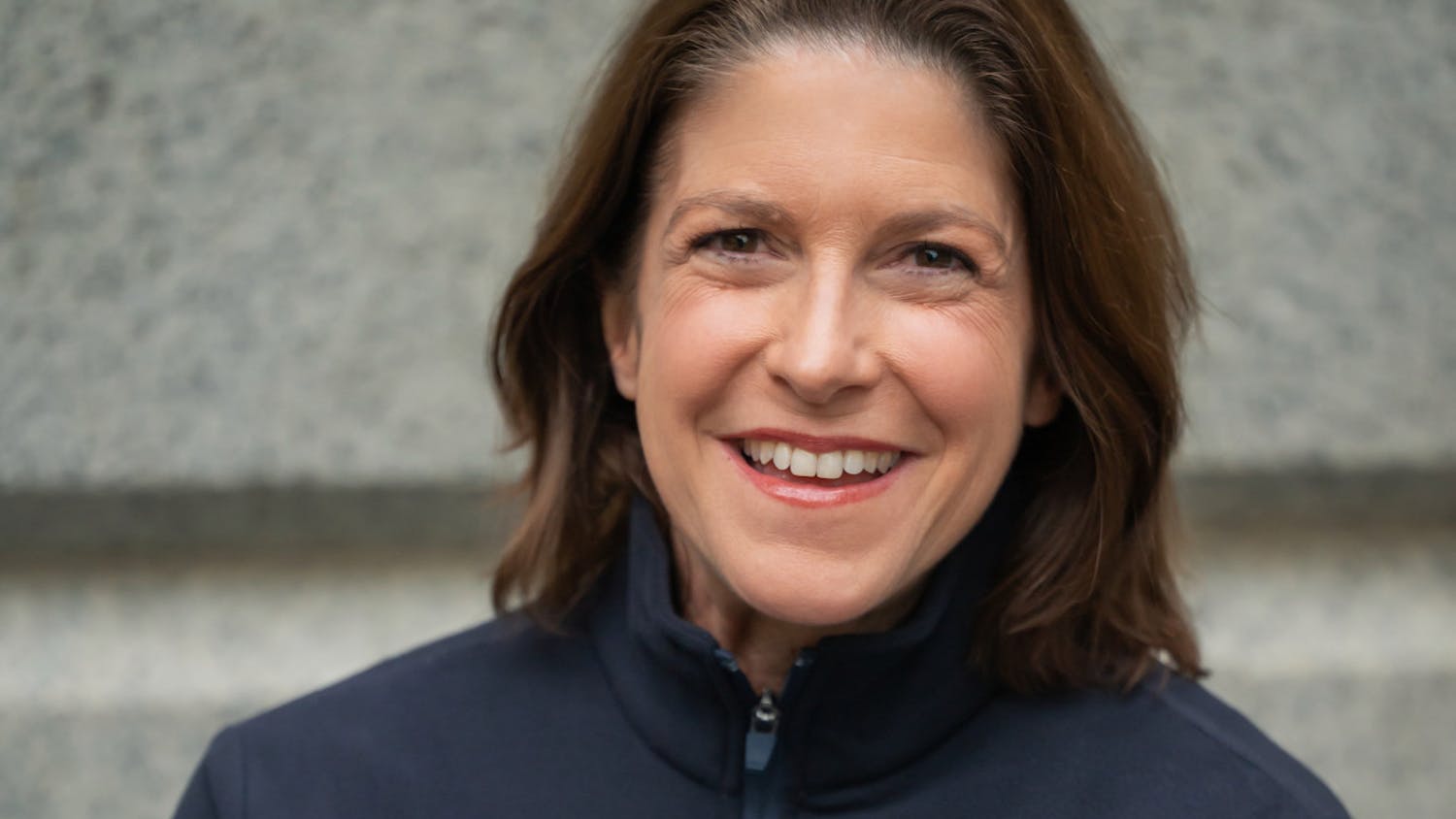HELP initially placed Charles and Lefranc at the College through the 2010 Spring term. The students' academic advisors and the dean of the college's office decided to allow them to remain for an additional term because they have succeeded at the College and their university in Haiti has not yet resumed a full class schedule, according to Molly Bode '09, presidential fellow in global studies and higher education.
"They have been succeeding academically and otherwise at Dartmouth and have also incredibly enjoyed their time here, so having them stay made sense," Bode said. "They wished to have the opportunity to take advantage of both the academic expertise of our faculty and the experiences outside of the classroom that they would not have otherwise."
The College continues to work closely with HELP in order to assess the success of the partnership, ensure that the students' credits can transfer and monitor ongoing developments in Haiti, Bode said.
The College has not yet decided whether the students will remain in Hanover for the Fall term or beyond, Bode said.
"Each term we've reassessed the situation, and that's the plan going forward," Bode said. "We're working with HELP to look into the possibility of an exchange system that's more long-term."
She added that the decision to allow the students to remain at the College will largely depend on the condition of Universite Quisqueya and the educational options available to students in Haiti.
The Haitian government has not yet started to rebuild the university, and classes are currently held in makeshift tents in the courtyard, Lefranc said.
"If we are given the chance, we would stay," he said. "We would definitely stay."
He added that the Universite Quisqueya also suffers from a shortage of teachers.
"Many professors died in the earthquake and some of the others left the country because the situation is so bad, so there aren't enough teachers," he said. "It'll take many years to establish [the school] like before."
Both students said that upon arriving at Dartmouth, it took some time to become accustomed to taking classes in English.
"In Haiti, we speak Creole and French, so this was [our] first time taking classes in English," Charles said. "My professors were very nice and very helpful and helped teach me how to access materials so I could better understand."
Lefranc added that the shorter academic term "took some getting used to."
"Dartmouth has a different system since it's only 10 weeks, which is very tough, and back in Haiti the terms are four or six months," he said. "But it's good for us to be challenged like that."
Both Charles and Lefranc said that they have learned many concepts in their classes that they hope to apply when they return to Haiti.
"I took a global environmental health class and it's a class which has a really great importance," Lefranc said. "We discussed some really important public issues related to human health and unfortunately we don't have a class like this back in Haiti."
Both said they are interested in pursuing master's degrees after completing their undergraduate education.
"I would like to have enough skills so that I'm better prepared to help Haiti as much as possible," Charles said. "I don't know exactly yet but I think something related to economics and agriculture because those two things are really working together today."
Lefranc said he plans to return to Haiti after completing school.
"I feel like I have a responsibility to contribute to helping Haiti with environmental issues and other problems related to development," he said.
While they both chose to focus almost solely on academics in the spring, they said they hope to become involved in other activities now that they have settled in.
"For the Spring, it was more challenging because I was not really confident that I could make it," Charles said. "I wanted to concentrate on my studies because our first goal is to succeed in our classes."
Charles is taking a swimming class this term, and both Charles and Lefranc plan to begin volunteering at the College's organic farm as well.
Charles said that improving her English skills has been one of the most valuable parts of her Dartmouth experience.
"In Haiti we start learning English young, but because it's not a speaking language there, we couldn't really improve," she said. "It's a really important skill to have for finding rewarding jobs and for our futures."
She added that exposure to a new culture has helped open her eyes to new ideas, and has also helped her appreciate traditions that are unique to the Haitian culture.
Bode said that she has had the opportunity to get to know Charles and Lefranc on a personal level.
"They're just a joy to be around and I don't doubt that they will bring excellent ideas back to Haiti," Bode said.
Both of the students' families still reside in Haiti. Despite the opportunities available at Dartmouth, both students said they experience occasional bouts of homesickness.
While Charles said she speaks with her family at least once a week, Lefranc said he is able to speak to his family "only scarcely."
"They don't have access to the Internet and phone calls are very expensive," he said. "I love it here but sometimes I just want to, for example, be able to eat some real home food."




